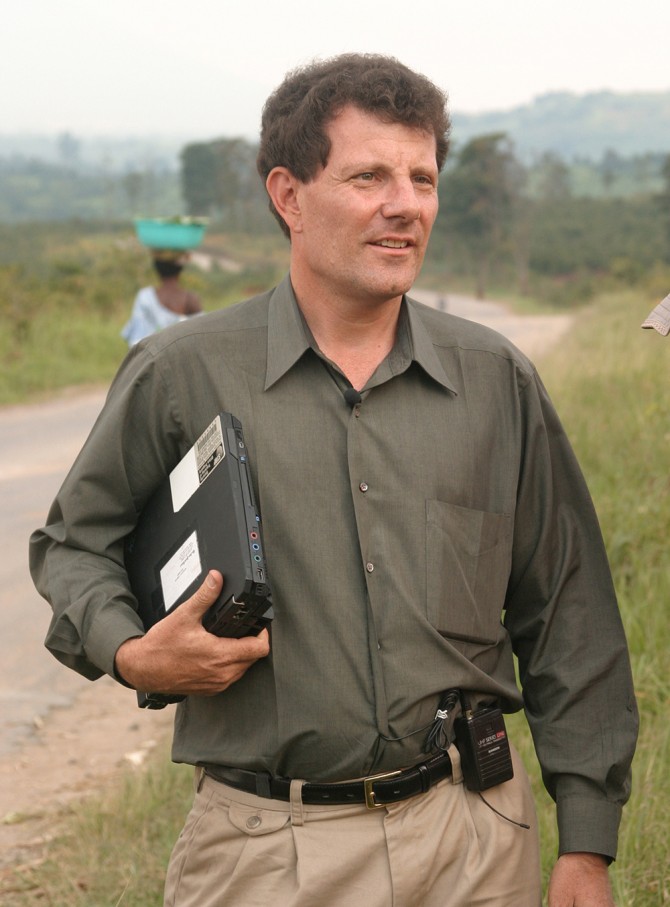Nicholas Kristof to give Bronfenbrenner Centennial Lecture Oct. 2
By Sheri Hall
Normal 0 false false false EN-US X-NONE X-NONE /* Style Definitions */ table.MsoNormalTable {mso-style-name:"Table Normal"; mso-tstyle-rowband-size:0; mso-tstyle-colband-size:0; mso-style-noshow:yes; mso-style-priority:99; mso-style-parent:""; mso-padding-alt:0in 5.4pt 0in 5.4pt; mso-para-margin-top:0in; mso-para-margin-right:0in; mso-para-margin-bottom:8.0pt; mso-para-margin-left:0in; line-height:107%; mso-pagination:widow-orphan; font-size:11.0pt; font-family:"Calibri",sans-serif; mso-ascii-font-family:Calibri; mso-ascii-theme-font:minor-latin; mso-hansi-font-family:Calibri; mso-hansi-theme-font:minor-latin;}
Pulitzer Prize-winning journalist Nicholas Kristof, a writer for The New York Times known for his work exposing social injustice, will speak on campus Monday, Oct. 2, at 5 p.m. in Call Auditorium. The event is free and open to the public.
Kristof will deliver the Bronfenbrenner Centennial Lecture to honor the 100th anniversary of the birth of developmental psychologist Urie Bronfenbrenner, who taught at Cornell for more than 50 years and is considered by many to be the father of translational research.
Kristof’s lecture is titled “A Path Appears: Promoting the Welfare of Children.” The talk will draw on his work in promoting gender equality around the world and on public health and poverty with a focus on children. His reporting has documented the living conditions of people across the globe and advocated for human rights.
“Nicholas Kristof is the perfect person to help us celebrate the centennial of Urie Bronfenbrenner’s birth,” said Karl Pillemer, director of the Bronfenbrenner Center for Translational Research and the Hazel E. Reed Professor in the Department of Human Development. “Urie and Nicholas share an interest in protecting the rights of children and in the ways citizens and policymakers can act positively to change our society for the better.”
Bronfenbrenner’s work at Cornell included developing theory and research designs at the frontiers of developmental science, finding ways to apply those theories to use in policy and practice, and communicating his findings to the public and to decision-makers.
His research was among the first to demonstrate the environmental and social influences on child development and was critical in helping the U.S. government develop the Head Start program, which provides early childhood education, nutrition and parenting support to low-income families.
The Bronfenbrenner Center in the College of Human Ecology capitalizes on translational research as a means to more closely link the twin missions of research and outreach.
Kristof holds a bachelor’s degree in government from Harvard University and a law degree from Oxford University, England, which he attended as a Rhodes scholar.
Sheri Hall is a freelance writer for the Bronfenbrenner Center for Translational Research.
Media Contact
Get Cornell news delivered right to your inbox.
Subscribe